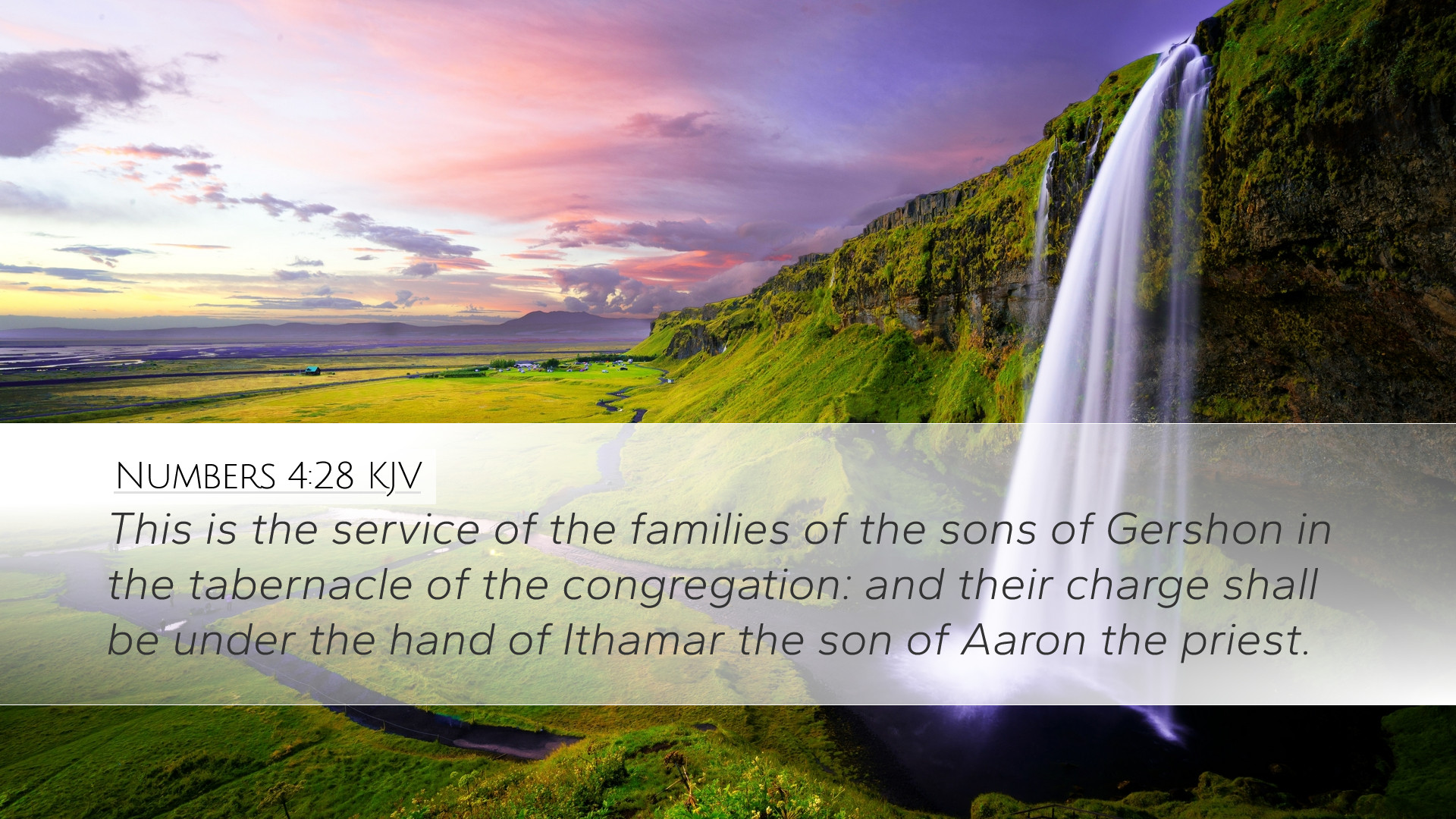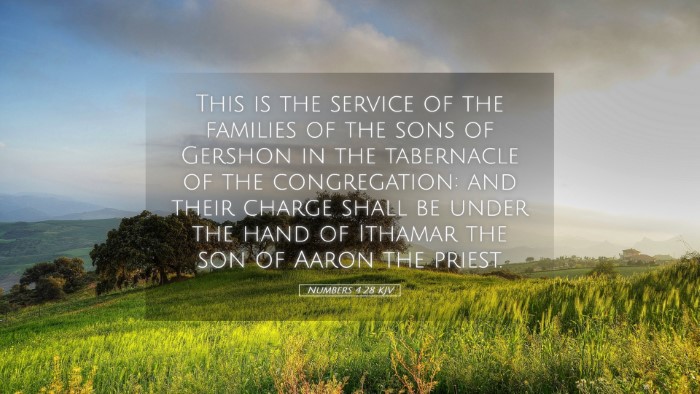Commentary on Numbers 4:28
Verse: Numbers 4:28 states, "This is the service of the families of the Gershonites, in serving and in bearing burdens:"
Introduction
Numbers 4:28 provides a glimpse into the organization and responsibilities of the Levitical families, particularly the Gershonites, who held a significant role in the service of the Tabernacle. By examining various public domain commentaries, we can gain deeper insights into the nuances of this verse and its implications for the Levitical service.
Historical Context
The book of Numbers details the organization of the Israelite tribes during their journey through the wilderness. The Levitical tribes were set apart for sacred duties associated with the Tabernacle. The Gershonites, specifically, were tasked with transporting certain elements of the Tabernacle and providing significant support through their labor.
Commentary Insights
Matthew Henry's View
Matthew Henry emphasizes that the service of the Gershonites reflects God's order and dignity in the service of His Tabernacle. He notes that each family within the Levites had distinct responsibilities, underscoring the importance of organization in carrying out God's commands. Henry points out the symbolism of their tasks, viewing them as a representation of how God desires His people to serve Him.
Albert Barnes' Analysis
Albert Barnes elaborates on the specific duties of the Gershonites, describing them as responsible for the curtains, coverings, and hangings of the Tabernacle. He highlights the significance of "bearing burdens," not just in a physical sense, but also as a spiritual metaphor for the burdens of the congregation. Barnes invites the reader to reflect on the noble calling of service and the importance of each role in the broader picture of worship and ministry.
Adam Clarke's Interpretation
Adam Clarke provides a comprehensive interpretation of the verse by explaining the division of labor among the Levitical families. He notes that the Gershonites were designated not only to carry physical burdens but also to engage in spiritual labor that uplifted the community. Clarke emphasizes that their task was an act of worship, linking physical service to spiritual devotion. He suggests that the structure established by God serves as a model for organized labor in spiritual endeavors today.
Theological Themes
- Service and Ministry: The Gershonites’ service serves as a reminder of the commitment required in ministry, where every aspect, irrespective of its visibility, bears significance in God's plan.
- Divine Order: The distinction given to each Levitical family highlights the theological impact of order and structure in worship, emphasizing that God is a God of order.
- Burden Bearing: The phrase "bearing burdens" resonates deeply within Christian theology, calling believers to support one another and carry each other's burdens in love, as echoed in Galatians 6:2.
Practical Applications
- Encouragement in Service: This verse encourages believers to embrace their roles within the church, recognizing that each task, whether seen or unseen, contributes to the greater purpose of glorifying God.
- Respect for Spiritual Order: Understanding the roles of the Levitical families invites contemporary readers to respect and uphold the order within church ministry, ensuring that every role is honored and fulfilled.
- Community Support: The concept of bearing burdens can be practically applied in church communities, fostering a supportive environment where all members assist one another in their spiritual walks.
Conclusion
Numbers 4:28 signifies more than just the responsibilities of the Gershonites; it encapsulates the broader theme of service in the life of believers. By reflecting on the insights provided by public domain commentaries, we are reminded of our call to serve in various capacities and the importance of maintaining a spirit of order and cooperation in our communal worship. As we engage in service, may we do so with the intention of glorifying God and uplifting one another in our spiritual journeys.


